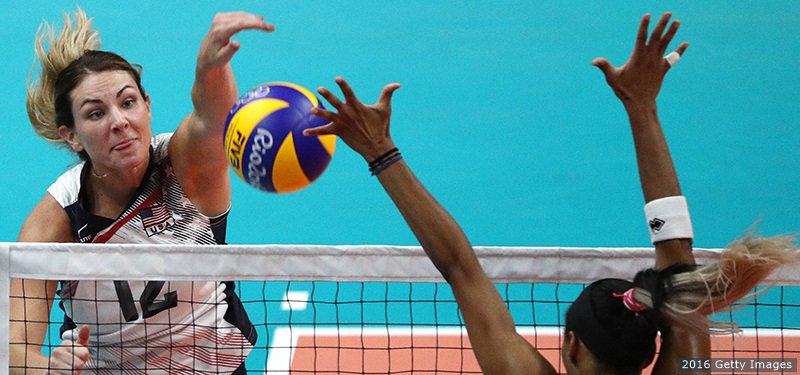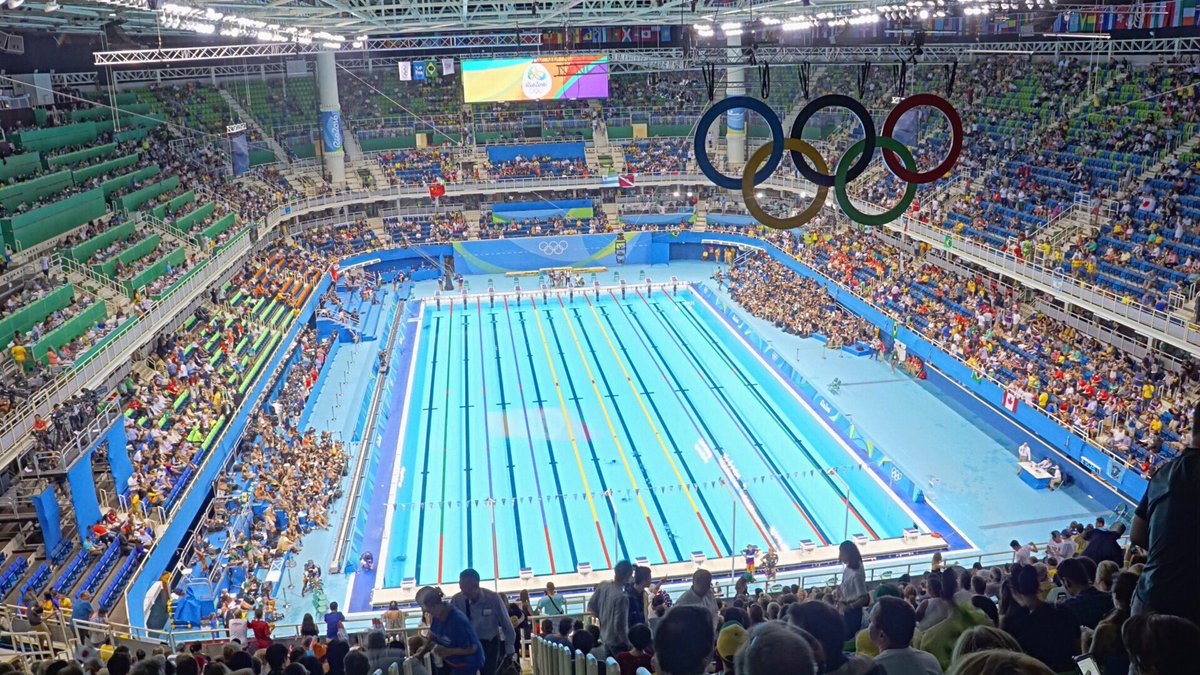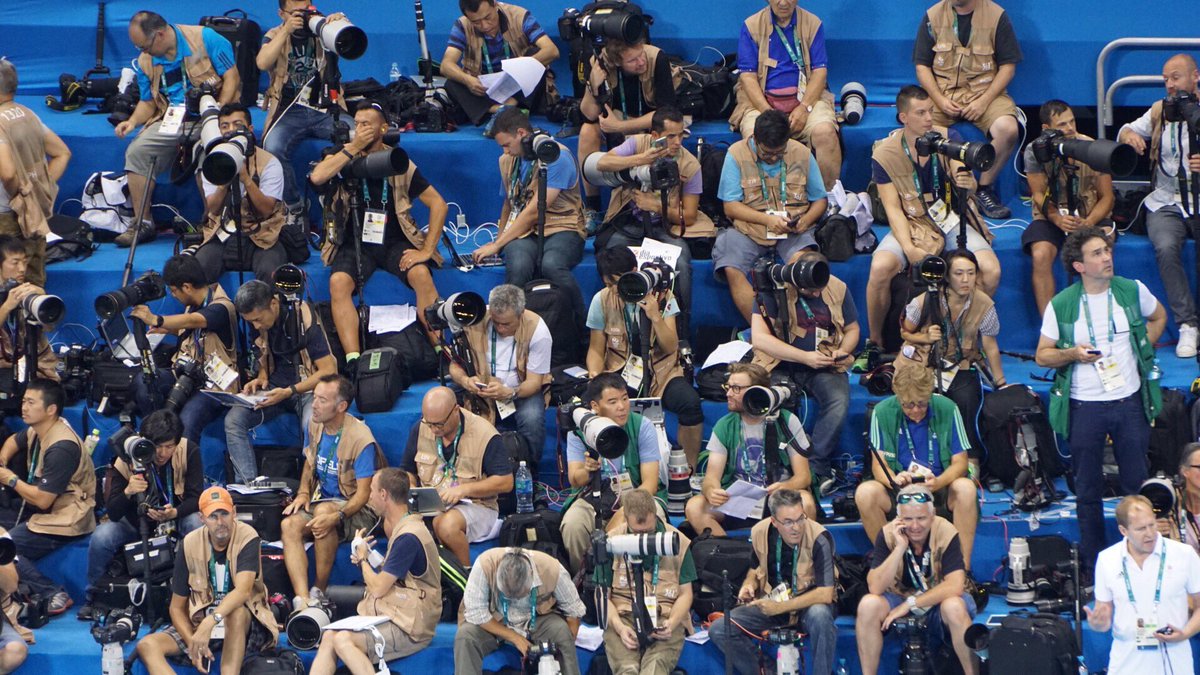U.S.A. Rugby is BACK in the Olympics and Team U.S.A. couldn't be happier.
RIO DE JANEIRO – Rugby is back in the Olympic Games and Team USA could not feel more welcome.
The Women's Eagles, as the U.S. team is known, lost to Fiji 12-7 in rugby sevens pool play Saturday at the Rio 2016 Olympic Games in women’s rugby’s Olympic debut, and while the match was fierce, it was also friendly.
Roll back the clock to the last time rugby was played at the Games. The year was 1924 and the U.S. men beat host country France 17-3 for the gold medal in a final marred by fights in the stands. The French fans booed and hissed the Americans so lustily – even during “The Star-Spangled Banner” – that they needed police protection upon leaving the field.
The sport would not appear on the Olympic schedule again since until Saturday morning, when women – who did not play in rugby's previous Olympic appearances in 1900, 1908, 1920 or 1924 – took the field.
“It was exciting – putting your foot on this grass in general, you're making history,” said forward Kathryn Johnson. “And you're there with your buddies. So it can't get any better than that, right?”
A win would have been nice, but Team USA achieved that milestone later Saturday by walloping Colombia 48-0. The Eagles will face top-ranked Australia on Sunday, with hopes of advancing to the quarterfinals later the same day.
The USA/Fiji matchup was the most competitive of the openers, with France defeating Spain 24-7, New Zealand trouncing Kenya 54-0, Great Britain beating host team Brazil 29-3, Canada blanking Japan 45-0 and Australia rolling over Colombia 53-0 in 15,000-seat Deodoro Stadium, which was a little more than half full.
Fiji attacked early, but the Eagles made a goal-line stand. Luisa Tisolo scored a try and the conversion to give Fiji a 7-0 halftime lead. The South Pacific nation was up 12-0 when Alev Kelter scored a try 2:37 into the second half. Bui Baravilala added the conversion to make it 12-7.
That made Kelter the first American woman to score a try in the Olympic Games. “It truly is an honor,” she said, pausing. “Actually I hadn't thought about that. That's really cool.”
Kelter, who played soccer and ice hockey at the University of Wisconsin, said the first time she saw rugby sevens, “I thought that it was a tough sport and it's so fast-paced and it's something that Americans can definitely get behind. We're just so blessed and honored to be pioneering that right now.”
“It's phenomenal,” added forward Jillion Potter. “The Olympics provides a wonderful platform for rugby and we're hoping that more and more people start playing the game and we're excited the share the wealth of rugby for the world.”
Rugby sevens – a departure from the 15- a-side game played in previous Games – and golf were voted onto the Olympic program by the IOC in 2009. However, they are only guaranteed appearances in Rio and in Tokyo in 2020. The IOC will vote again next year, so it is vital that the men's and women's tournaments be successful.
“It's pretty insane,” said Johnson. “It's kind of unreal how much it can help grow the game. Especially women's sports, having a full-contact game in the Olympics is pretty amazing.”
While rugby is the national sport in Fiji, it still is trying to gain more of a cleat-hold throughout the world.
“That's because they have the exposure,” Johnson said of Fiji. “We have football and basketball. That's what we have to overtake, and we have to get the views in rugby, and this is what we're planning on doing in the Olympics.”
In the second match against Colombia, Kelter scored less than a minute into the contest, followed by a conversion to put Team USA up 7-0. Kelter added another try and conversion while Johnson had two tries for 10 points. Seven players contributed to the American scoring line.
The men's tournament, which begins on Tuesday with Team USA facing Argentina, features Carlin Isles, known as “the fastest man in rugby,” and New England Patriots safety Nate Ebner, the only active NFL player to qualify for the Rio Games. Ebner, who will try to add an Olympic medal to his Super Bowl ring from 2014, was the youngest player to play on the national rugby sevens team at age 17.
Brian Hightower, a former Eagles player and the NBC analyst for rugby, said the sport “is perfectly tailored for the Olympics. You have the best open field running. You have one-on-one tackling, you’ve got collisions, and it’s a very physical game, but it’s also a very beautiful game.
“It’s one with a ton of strategy and what people will come to appreciate if they really focus on the athletes is the amount of work that they’re doing and how fit they are. Every game – and it’s two a day – they’re going to be sprinting a mile in that 14 minutes, and that’s a ton of work. It’s not just the running, but then you have to get up off the ground, you’ve got to tackle people, you’ve got to be tackled, you’ve got to make decisions. It’s just got everything.”
With each half lasting only 7 minutes, there's no time to make a mistake.
“And if you do,” Johnson said, “you've got to brush it off and keep going, so we did make a few mistakes and we've got to learn how to keep our heads high and go on to the next move.”
She said she doesn't mind playing twice in one day.
“I just love rugby,” Johnson said, “and any day that's a rugby day is a good day.”
 <strike></strike>
<strike></strike>
















